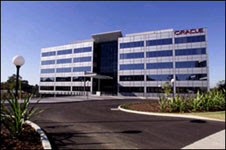So, you've probably read the posts from a bunch of people lamenting the passing of SOA to the next world. The thing is, SOA is a fantastic technology that provides so many benefits and capabilities to the modern organisation that it shouldn't be allowed to die without so much as a lowering of the corporate flag or the echoing sounds of a muted trumpet!
Now, most of you know I'm the Blog's content expert - so you're probably asking yourself what does SOA have to do with me.....? The thing is, you see, SOA is really, really important for ECM from the integration and goverance perspective. If I had a dollar for each time I've been told 'ECM is really difficult to implement and enforce' I would have $12 (probably). ECM can be hard to deploy and get user buy-in simply because it adds a layer of complexity to the user and we all know, users' really don't like change. But, what if leveraging an ECM solution was simplified - what if adding, changing or deletion content was easy and looked/felt/smelt no different to the tools being used by the workforce today? This is probably the easiest example of how SOA and ECM can work effectively to enable the deployment of an unstructured content solution for the enterprise.
SOA, by definition, allows services to be built in a manner that promotes reuse. They also help simplify the process for interacting with a solution - like ECM. Most people in the industry understand basic SQL - SELECT, INSERT, MODIFY and DELETE are standard functions that allow the interaction between an application and records within a relational database. But when it comes to unstructured content that is managed within an ECM solution - there are a lot more features and functions that could be called, i.e. security, version-management, rendition-management etc. The API calls required within an ECM solution go beyond the 4 basic concepts that SQL provides and this is where the power of SOA comes into play - allowing the combination of complex API calls within a simplified service layer where an application 'simply' requests that a document be stored or retrieved from the repository. Where an organisation creates (or buys) a library of ECM-related service calls - the integration of the ECM repository to a large number of difference applications (or uses) becomes more straight-forward and allows the 3rd generation ECM model of an Information Infrastructure to be truly deployed. SOA makes this, and other types of integrations, much easier to implement - maybe it is time for a rebranding of what is one of the most useful tools in the IT kitbag - SOA certainly hasn't died!
Paul
The Oracle Australia and New Zealand Middleware and Technology Blog.
Thursday, January 8, 2009
Subscribe to:
Post Comments (Atom)


No comments:
Post a Comment